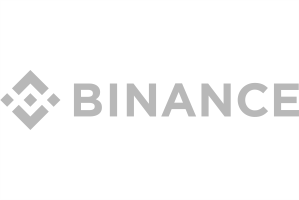Securing a UK crypto exchange license is increasingly pivotal as the United Kingdom emerges as a leading hub for cryptocurrency exchange and cloud mining operations, despite the challenges posed by legal uncertainties around classifying cryptocurrencies within existing civil rights frameworks.
Originally, UK-based crypto exchanges operated without needing a government-issued crypto license in the UK, as formal regulation did not mandate it. But with the establishment of the Financial Services Authority Innovation Hub, players in the crypto market have access to legal advice, albeit on a non-mandatory basis.
A Strategic Framework for a Cryptolicense in Great Britain
The Financial Conduct Authority (FCA), Her Majesty’s Treasury (HMT), and the Bank of England (BoE), as part of the UK Cryptoasset Taskforce, categorize crypto assets as secure digital symbols of value or contractual entitlements. They use encryption and distributed ledger technology for electronic transfer, storage, or trading. Crypto exchange license in Great Britain positions your venture at the forefront of financial innovation, The Taskforce delineates three principal crypto asset types:
- Exchange Tokens: Often known as ‘cryptocurrencies‘ like Bitcoin and Ether, function on distributed ledger technology (DLT) and are not supported by any central authority, serving as a means of exchange or investment without the typical securities rights.
- Security Tokens: These fall under the Financial Services and Markets Act (2000) as ‘specified investments’, potentially offering rights to ownership, monetary returns, or a stake in future earnings, aligning with securities or financial instruments per the EU’s MiFID II.
- Utility Tokens: These grant users access to specific services or products.
The FCA made the addition of electronic money (e-money) tokens, defined under the Electronic Money Regulations (2018), in its 2019 Policy Guidance.
In pursuit of a potential central bank digital currency (CBDC), labeled informally as “Bitcoin,” Chancellor Rishi Sunak, in 2021, mandated the BoE to explore creating a digital pound. This could revolutionize business and consumer transactions, streamline payments, and solidify financial stability without ousting traditional cash or bank accounts. However, an official decision on adopting a CBDC in Great Britain has yet to be taken.
Fast-forward to April 2022, the government has pledged to establish a fresh regulatory landscape for crypto assets, carefully weighing the associated risks and benefits. A consultation paper released on February 1, 2023, advances this plan, proposing a regulatory framework built on prior stablecoin initiatives and crypto financial developments. These measures are steps towards Great Britain‘s goal to become a hub for crypto technology and innovation, offering a supportive environment for crypto service providers to thrive while safeguarding consumer interests and financial stability.
What Activities are Covered by a Cryptocurrency License in the UK
In the UK, securing a United Kingdom crypto license is a vital step for crypto firms, given that they must comply with anti-money laundering (AML) regulations and counter-terrorist financing (CTF) measures formerly aligned with EU directives. These rules aim to disrupt the illicit flow of funds and curb financial crimes.
Crypto enterprises seeking to operate legally must obtain authorization from the Financial Conduct Authority (FCA) for a range of services:
- Cryptocurrency to fiat transactions and vice versa.
- Cryptocurrency to cryptocurrency transactions.
- Operations of Crypto ATMs.
- Offering custodial wallet services.
- Enabling peer-to-peer crypto exchanges.
- Engaging in Initial Coin Offerings (ICOs).
Moreover, entities already registered with the FCA for other financial services, such as e-money issuance or payment services, must register for a United Kingdom cryptocurrency license if they intend to engage in cryptoasset activities.
Critical Benefits of Crypto License in the UK
Gaining a United Kingdom crypto exchange license offers a host of attractive advantages:
Tax Efficiency
- With a corporate tax rate of 19%, the UK is competitively tax-friendly.
- Cryptocurrencies are recognized as property, attracting capital gains tax on their disposal, avoiding classification as currency gains.
- VAT is non-applicable in cryptocurrency trading.
Simplified Registration
- The setup process for a crypto company in the UK is notably uncomplicated and straightforward.
- Options are available for different corporate structures to fit your business model, from limited companies to innovative entities.
European Market Access
- The UK’s maintained relations with the EU offer advantages for businesses.
- Acquiring a crypto exchange license in the United Kingdom opens doors to the European Economic Area under passporting rights, eliminating the need for multiple EU licenses.
Fintech and Blockchain Ecosystem
- A dynamic ecosystem exists to support fintech and blockchain endeavors.
- This environment is ripe for networking and collaboration opportunities.
Language and Law
- Conducting business in the primary language of English streamlines international communications.
- The UK standard law system is renowned for its stability.
UK Cryptocurrency Regulation and Legislation
The framework for a cryptocurrency license in the United Kingdom mandates adherence to established AML/CFT protocols, consistent with the EU’s 5th and 6th Anti-Money Laundering Directives, which the UK had implemented before its EU departure.
Companies in the UK dealing in crypto assets must follow the Money Laundering, Terrorist Financing, and Transfer of Funds (Information on the Payer) Regulations 2017. These regulations require entities to engage in customer due diligence, a process overseen by the FCA, which aims to prevent the misuse of cryptocurrency operations for money laundering or illegal activity financing.
Businesses engaging in the following activities must comply and possibly register for a United Kingdom cryptocurrency license register with the MLRs:
Exchange services between crypto assets and fiat currencies, including:
- Crypto asset exchange providers, such as:
- Crypto ATMs.
- Peer-to-peer exchange platforms.
- Initial Coin Offering (ICO) or Initial Exchange Offering (IEO) issuers.
- Services that involve exchanging:
- Crypto assets for fiat currencies.
- Fiat currencies for cryptoassets.
- One type of cryptoasset for another.
- Operating machines that facilitate automated transactions between cryptoassets and fiat currencies.
Custodian wallet providers offering:
- Services to safeguard or control:
- Crypto assets for customers.
- Private cryptographic keys for the management and transfer of cryptoassets.
As these regulations are crucial in establishing and operating crypto-related businesses, obtaining a crypto licence United Kingdom is an essential compliance step for industry players.
Besides adhering to UK financial laws, the commercial exchange or provision of cryptocurrency services must comply with the Consumer Rights Act 2015 and the Consumer Protection from Unfair Trading Regulations 2008. These regulations are geared towards consumers—people buying goods or services for private use, not for business purposes—and grant them statutory rights and remedies in dealings with suppliers of goods, services, and digital content.
UK Crypto License and Other Countriesincom
The allure of the United Kingdom in the crypto sphere is significant, offering esteemed global recognition for its jurisdiction and the flexibility of registering companies remotely. Additionally, individuals outside the UK can obtain a license, and there’s no requirement for a predetermined minimum share capital.
Turning to Malta, its early adoption of cryptocurrency regulations has earned it worldwide acclaim. This pioneering stance has established Malta as a leader in digital asset management, with the added fiscal incentive of VAT exemption for crypto exchange transactions.
Requirements
Applicants must present a comprehensive suite of documents and details, including:
- An operations program detailing specific cryptoasset activities.
- A robust business plan that includes:
- Business goals.
- Clientele.
- Staff details.
- Governance frameworks.
- Financial plans and continuity strategies.
- This plan must reflect a well-researched proposal with due consideration to financial and non-financial resources, complete with transaction volumes, client profiles, pricing strategies, and income-expense structures.
- Forward-looking budget estimates for the initial three fiscal years.
- A marketing strategy outlining customer profiles and distribution networks.
- The organizational framework, with a complete structural chart and notes on any outsourced functions (subject to FCA review).
- An outline of systems and controls, particularly highlighting IT systems and security protocols.
- Proof of the management team’s reputation and competence.
- Internal governance and control systems are designed to identify and mitigate risks, including money laundering and terrorism financing.
- A risk assessment matrix tailored to the firm’s specific activities, with elaboration on risk management, including employee training schemes.
Under the cryptocurrency license United Kingdom regulations, critical documents must also encompass the following:
- A ledger of all public crypto keys/wallet addresses used by the business.
- Protocols for customer initiation and due diligence, adhering to the statutory minimums.
- Transaction scrutiny procedures.
- Documentation and record retention processes.
- Money Laundering Reporting Individual forms for leadership and beneficial owner declarations for shareholders.
As per AML/CFT standards, key individuals such as officers, managers, and beneficial owners must satisfy Regulation 58A of the MLRs’ “fit and proper” test, which is essential for final registration with the FCA. This extends to:
- Partners.
- Company directors.
- Compliance and board members.
- Officers in charge of reporting to the National Crime Agency.
- Beneficial owners with significant company stakes.
- Influential personnel in similar capacities.
The documentation’s primary goal is to affirm that the applicant meets AML/CFT laws, ensuring readiness for the operations with a crypto exchange license United Kingdom.
Procedure and Timeframe for Obtaining a Crypto License in the UK
Securing a United Kingdom crypto license requires adherence to the stringent AML/CFT stipulations referenced in the Money Laundering, Terrorist Financing, and Transfer of Funds (Information on the Payer) Regulations (MLRs), specifically Regulations 8 and 9.
Crypto enterprises must register with the FCA before launching their operations in the UK. A definitive evaluation of a fully completed application will be rendered by the FCA within three months, granting Part 4A Permission for authorized activities.
Conversely, incomplete submissions may extend the review to 12 months, often culminating in denial due to inaccuracies or omissions.
Guidance for registration:
- Diligently consult the FCA website for updated registration forms and guidelines.
- Ensure the application is exhaustive and precise, as gaps will prompt additional inquiries, potentially causing delays or refusal.
- Documentation and data furnished should be current and tailored to the application’s requirements.
The FCA’s Innovative Pathways department can clarify regulatory implications for cryptoasset business structures.
Steps in the cryptocurrency license in Great Britain application:
- Remittance of the applicable application fee, contingent on the firm’s revenue:
- 2,000 GBP for annual incomes under 250,000 GBP
- 10,000 GBP for annual incomes over 250,000 GBP
- Completion and submission of the application via the Connect platform.
- The FCA allocated a case officer to initiate the review.
- Supply of supplementary information at the FCA case officer’s behest.
- Validation of the application through cross-references with databases and information from other regulatory bodies.
- The FCA evaluates whether the crypto enterprise satisfies the threshold conditions as delineated in the FCA Handbook.
- Issuance of a Part 4A Permission upon a successful application.
- Written confirmation from the FCA specifies the scope and boundaries of the sanctioned activities.
Following authorization, the Financial Services Register will reflect the new status automatically.
Withdrawal during the authorization phase leads to forfeiture of the application fee. Withdrawals typically occur when companies cannot meet information requirements or miss statutory deadlines.
Rejections are communicated with explanations, and the application fee is returned, leaving room for reapplication.
Moreover, sanctioned firms must settle a periodic fee. This fee is calculated through a specified formula considering the application fee, the firm’s valuation, and the months in the fiscal year, which the FCA will communicate. The first-year fee is proportionate to the remaining months of the year.
If a firm fails to uphold the necessary standards post-registration, the FCA holds the authority to suspend or revoke the cryptocurrency license in Great Britain.
Taxation
Cryptocurrency firms in the UK, already under the law on UK crypto license, face specific tax stipulations as detailed in the HMRC Cryptoassets Guide issued in March 2021. These companies must maintain records and meet tax obligations reflective of the evolving crypto market.
Outlined in earlier policy documents from 2018 and 2019, these requirements encompass activities such as:
- Trading tokens for other assets.
- Crypto mining operations.
- Token-based transactions for products or services.
Tax implications are determined individually due to the fluid nature of the crypto industry, a segment keenly observed under the regulation of UK crypto license.
For these enterprises, the fiscal year spans from April 6 to the following year’s April 5. Tax liabilities are calculated according to the business type and various financial indicators.
The principal taxes include:
- Corporate Tax – 19%
- Digital Services Tax – 2%
- National Insurance contributions – variable rates
- VAT – exempt for crypto transactions
Companies must report profits and deductible expenses for accurate taxation. Corporate Tax applies to profits from all token transactions, considering various deductible costs such as:
- Initial asset costs
- Transaction fees
- Advertising expenses
- Professional fees for legal transactions
- Costs for calculating gains or losses
However, the costs of mining equipment and utilities are generally non-deductible.
Losses incurred when allowable costs exceed crypto assets are adjusted against total profits and must be reported as per the taxation UK crypto license requirements.
The Digital Services Tax impacts platforms facilitating crypto sales, with few exceptions. Conversely, VAT exempts crypto exchanges but applies when cryptocurrency is used in exchange for goods or services.
FAQ
Do I need a bank account to get a cryptocurrency license in the UK?
Acquiring a bank account isn’t a mandated step for creating a cryptocurrency business in the UK. Nonetheless, it’s strongly advised to open one.
What difficulties might one encounter when getting a cryptocurrency license in the UK?
To obtain approval from the FSA, applicants are required to meet specific criteria. Challenges can occur if the information provided to the FSA needs to be completed or meets the standards. Additional complications can emerge if the applicant does not implement an extensive risk management framework and policies tailored to the anticipated scale and intricacy of the cryptocurrency operation.
How long is the cryptocurrency license valid in the UK?
Since it’s more of a registration than a fixed-term license, this authorization has no set expiry date.
Why should you opt for a cryptocurrency license in the UK?
Several compelling reasons make the UK an attractive destination for setting up a cryptocurrency business. Primarily, the UK boasts a robust and well-respected regulatory system within Europe that advocates for the cryptocurrency market. Beyond that, the UK stands out as a Fintech leader, offering a vibrant ecosystem with networking and growth opportunities.








